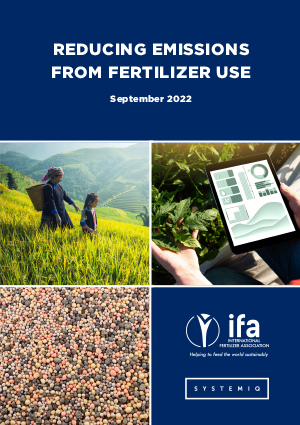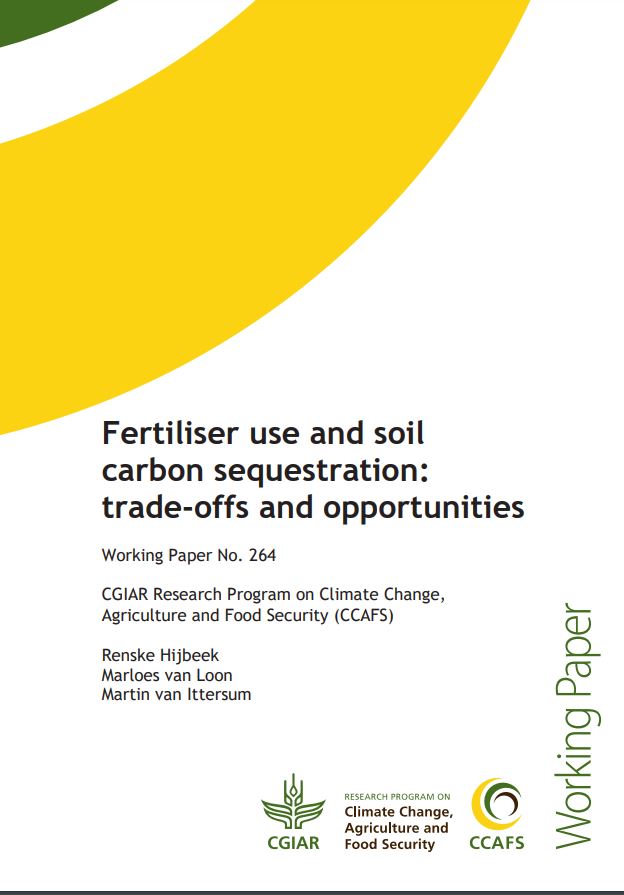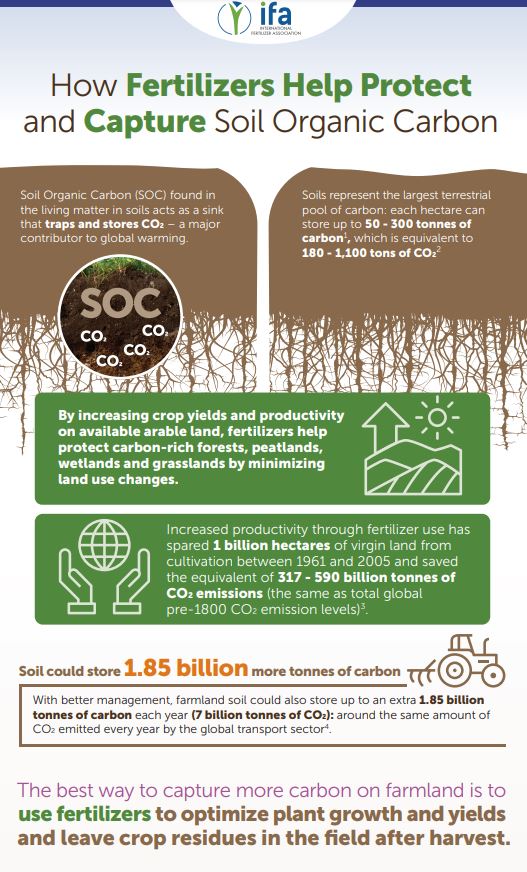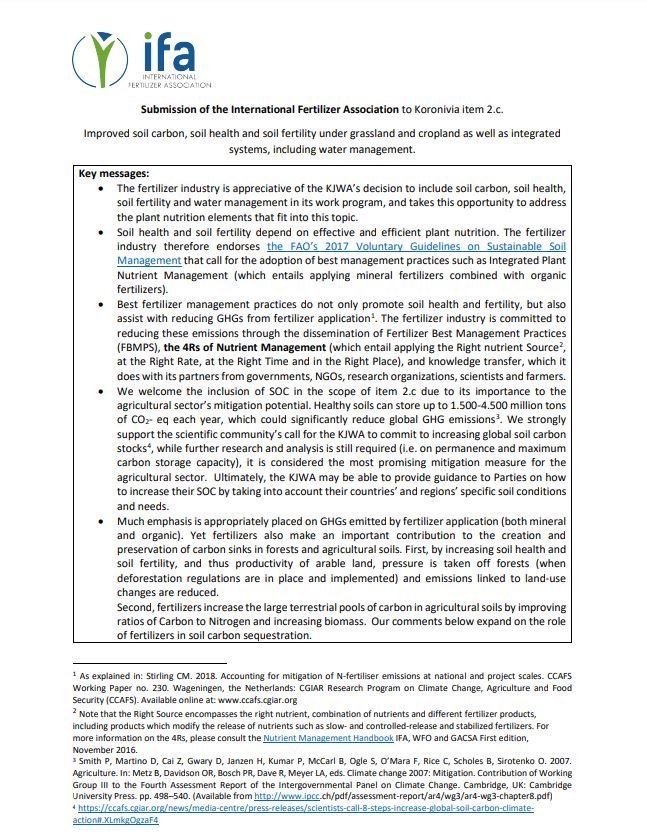Soil Carbon Sequestration and Land Use
key priorities
Fertilizers play two essential roles in the fight against climate change: They help prevent deforestation and other land use changes, and they can help sequester carbon in agricultural soils.
Fertilizers forestall deforestation as they allow for increased yields on currently cultivated cropland and grassland. They help maintain the integrity of the globe’s forests, which are important carbon sinks.
When properly managed, fertilizers can increase the carbon sequestration potential of agricultural soils by contributing to the building up of soil organic matter (SOM). Carbon sequestration in cultivated soils can be increased by adding appropriate organic and mineral nutrients for biomass production, proper crop residue management, as well as by reducing tillage, and using cover crops
In order to maximize carbon sequestration in SOM, the fertilizer industry advocates for the integrated use of organic and mineral fertilizers. Nitrogen fertilization plays a key role here because SOM has a relatively constant C:N ratio, however fertilization practices must minimize N2O emissions in order not to offset the benefit of increasing SOM.




